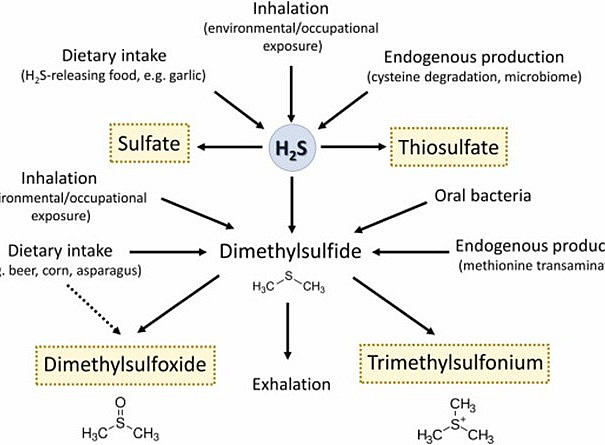Urinary excretion of H2S methylation metabolites in oil refinery workers
Why determine trimethylsulfonium in urine?
Hydrogen sulfide (H2S) is a toxic gas emitted through natural and anthropogenic activities. Chronic exposure to inhaled H2S at low sub-toxic levels is common among workers in oil refineries and may have important health implications. Inhaled H2S can be oxidized to thiosulfate or methylated to dimethylsulfide (DMS) which can be methylated to the novel human metabolite trimethylsulfonium (TMS) or oxidized to dimethylsulfoxide (DMSO) but the extent of methylation of inhaled H2S is currently unknown in humans. A total of 80 participants were recruited of which 40 were workers in an oil refinery in Kurdistan region, Iraq including those working in close contact with the facility area where H2S was measured at 1.5–5.0 mg m−3, and 40 controls living in a nearby city with no detectable H2S or perceptible odor (<0.1 mg m−3). A total of 240 urine samples were measured for multiple H2S-related metabolites. DMSO was consistently found in all urine samples with concentrations generally within the range of 1.0–10 µM. Although these concentrations were 10–100-fold higher than TMS urinary levels, clear correlation between DMSO and TMS was observed (rs 0.55, P < 0.0001), which supports DMS as common precursor. DMSO urinary levels were eleva…………….
